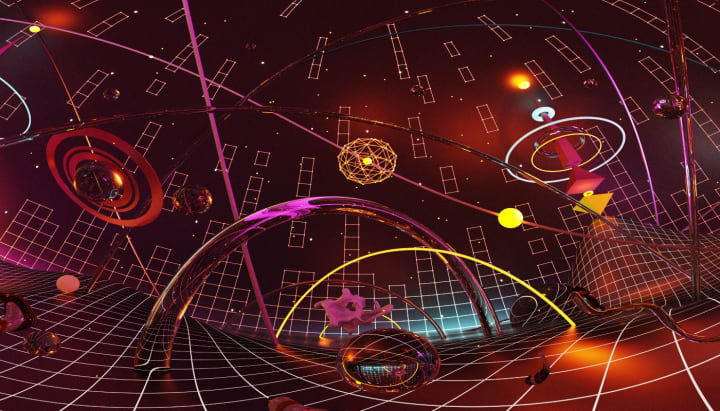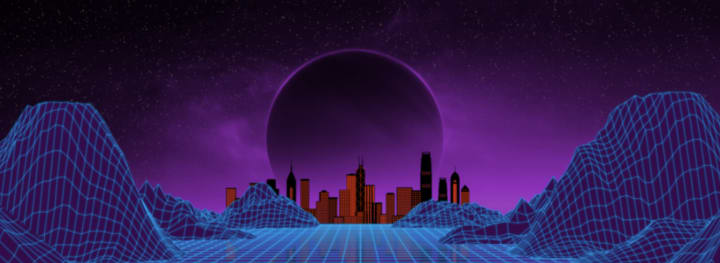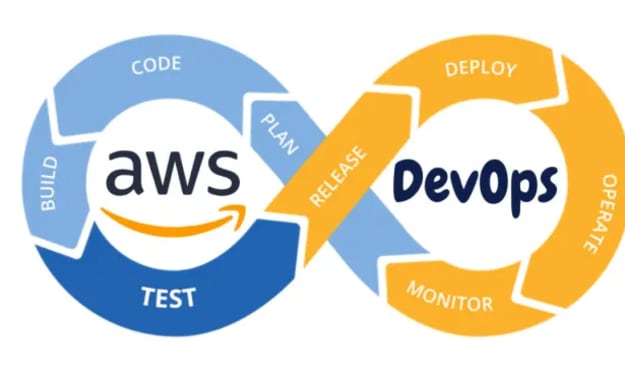The Virtual Loss of Reality
Social Downfall

About five years or so ago I remember having an indicia induced conversation with one of my best friends. During that conversation my friend would deduce a Nostradamus type theory that has without a doubt come to fruition. He said “watch, ten years from now we won’t be living in this reality. We’ll be living completely virtual”. It’s probably the most forethought he’s had or will ever have in his life, but he hit the nail on the head. I never did give it a thought or an ounce of my intellectual effort to look into. Now however, virtual reality and virtual living cannot be ignored. Virtual life is here and it is here to stay, and in my opinion, it is exponentially terrifying.
To begin to comprehend the lifestyle that is virtual we must take a step back and look at the fruits of our tech labor within the last 10 years. There are a multitude of catalytic starting points we could infer towards the development of the virtual infrastructure we now see today. My belief is it all began with the rise of crypto currency. Crypto currency began with the phenomena that was Bitcoin back in the late 2000’s. What Bitcoin did was offer a new form of decentralized currency that was immune to the monopoly of corporate oversight and manipulation. Today there are hundreds of online, digital currencies available to use for almost anything one could want or need. Individuals can make transactions domestically and internationally within seconds without the hassle of governing bodies intervening. What this essentially created was the opportunity for an alternative way of living. That idea alone was enough to spawn a digital revolution that we are currently living through. Conventionally speaking, the idea of currency is a basic pillar of civilized society. The development of crypto manifests the erection of one of those pillars in the cyber space. A functioning society needs a functioning currency. The adaptation of crypto currency and the block chains they reside in create a path towards an alternative style of digital life.

With digital currency comes the need for consumer products. While today in 2021 there are a handful of major companies that will take crypto as payment for the purchase of their products, the real opportunity is digital. The rise of tangible online purchases has become a multi-billion dollar operation amongst tech giants. One of the leading examples of the monetization of digital content creation is the free video game Fortnite. The battle royal game released in 2017 was in retrospect, a head of its time. Players can purchase virtual clothing and utilities for their avatars using V-bucks, or “virtual bucks” keeping players up to date with the latest drops in the virtual gaming space. What was not foreseen was the totality of individuals the game itself had an impact on. Today in 2021, we have an entire generation of people, (mostly children) who have now been indoctrinated and have normalized the obsession with digital commerce and activity. The success of Fortnite’s business model has catapulted the innovation in the tech industry to keep up with the evolving space of digital commodity. Epic Games, the company behind the development of Fortnite, would eventually add on aspects to the gaming experience by working with a multitude of celebrity personalities to bring their own concepts to the digital playground. Fortnite would put on live concerts and contests all throughout their digital platform for their players engagement and experience. This would essentially create an entire universe of fun and fandom for those who participate in the game. The Fortnite universe was the first of its kind and was the clear catalyst for the production of some of the tech startups and companies we see today.
One of those companies that was birthed after the conception of Fortnite was the Oculus Virtual Reality Company. The production of the Oculus VR set is what triggered my memory of my conversation with my friend about where our society will be in the next ten years. I remember my friend clearly saying “We’ll have a headset and we will live there. We won’t have to do anything and we will become whoever we want to be”. The concept of the Oculus is complete emersion into a three dimensional, simulated world. Just by strapping on this pair of goggles, one can be put into a virtual world where everything seems lifelike. You can run, fight, fly, and whatever else you feel like doing all in a way that conventional gamers could never have done before. You can go to space, underwater, play a sport in a packed stadium, whatever your desire the Oculus can mimic. Essentially, sensory technology is the secret to the success. The head set has embedded sensors that monitor the individuals head motions and adjust the image accordingly. The latest version of the Oculus Rift is updated by an external positional-tracking sensor, which helps track head movements more accurately. The end result is the sensation that you are looking around a 3D world. It truly is a breakthrough in digital technology.
With the development and successful implementation onto the market of the Oculus in 2019, the obvious outcome would be for other tech companies to try and produce similar experiences. While that may have been the case in Silicon Valley, what was unforeseen was the engagement of social media companies. This is where I find the horror in the development of virtual reality and digital communities. On October 29th 2021, the head of Facebook Mark Zuckerberg announced the official rebranding of the company amidst the fall out of their anti-trust lawsuit. The company would change their name to fit their developing outlook into the virtual reality space. Meta would be the new name of the company. Meta defined Per Merriam-Webster; showing or suggesting an explicit awareness of itself or oneself as a member of its category: cleverly self-referential. Along with the announcement of the new brand name, Zuckerberg also announced what he believes to be the future of social interaction, the Metaverse. Coined first by novelist Neal Stephenson in his 1992 novel Snow Crash, Stephenson writes “In the lingo, this imaginary place is known as the Metaverse”. Meta is Greek for “beyond” and in this sense it is the transcendence of reality. Going “beyond” reality. The concept itself is the basis for metaphysics and adjectively speaking, the term Meta refers to “self-referential” or knowingly distinct from the conventional and concrete world. What Zuckerberg has created is a world indistinguishable from reality. In its totality, it is a multiverse. A theoretical reality that includes the possibility of an infinite number of parallel universes. The Metaverse is designed to become the future of social interaction. A universe where we can all plug into and interact, play, learn, and even work.

Since its inception, the Metaverse’s development has been fast and intriguing. People can now purchase digital land in the Metaverse as they would in the real world. Digital property and art have become huge commodities due to the synthesis of crypto currency and online universes. NFTs (Non-Fungible Tokens) have become a multimillion dollar industry. These are pieces of digital art purchased using cryptocurrency. As in the real world, art is a commodity with compounding interest, skyrocketing their value. In the digital space, art like NFTs are sold the same way just through block chains instead of conventional currency. The same is said for real estate. In November of 2021 a subgroup representing the Metaverse Company purchased a plot of “land” on the plant form Decentraland, an online platform/universe where people can buy and sell land and property to others using their form of crypto currency “mana”. In this universe people as avatars can travel to different locations purchased by other users. Users can socialize and engage in exchanges all through this lone universe. The Metaverse group would go on to purchase a plot of land in the universe for 618,000 mana or 2.43 million U.S. dollars. That’s absurd. The companies reasoning behind the purchase? To support their expansion into the digital fashion industry. With this in mind, several major fashion corporations have expressed their interests to be involved in the multiverse industry and creating their own NFTs. Just recently we saw designer wear company Moncler team up with Fortnite to release one of a kind digital clothing or “skins” for the games avatars. This surly raised the eyebrows of high society fashion due to the incorporation of other large retailers into the Metaverse conversation. Companies like Nike, Gucci Burberry and Louis Vuitton have all released a form of their own NFTs dipping their toes in the murky water of uncertainty that is the digital lifestyle. With that uncertainty acknowledged, here is why I believe this all will lead to the inevitable destruction of our society as we know it.
While innovation and creation are what fuels our global society, it is also what leads it astray. In the case of the Metaverse and other online universes, we may be witnessing the deterioration of civil society itself. As I had mentioned previously, we have an entire generation of people that have or will have grown up through digital interaction. To most, digital interaction comes without a cost. What used to be yelling obscenities over Call of Duty game chat to a voice of a person we had no relation to has now evolved to into a full on lifestyle. Generations of children have learned to interact virtually due to the COVID lockdowns. Companies like Epic Games and Facebook took advantage of this opportunity to introduce a new way of living. A way of living that is not conducive to reality. What the issue has become is distinguishing what is reality and what isn’t. The Metaverse and companies like Oculus are trying to blur the lines between our perceptions and needs. This leads to social ineptitude that can deteriorate social fabric and norms that are vital for our human development. It is the distortion of reality that worries me. The more reality is distorted, so is the mind. The younger the minds that are manipulated, the worse an impact it can have on a society. Not only does the theoretical distortion of the mind begin, the body will also adapt. These games and social sites not only hinder the development of the human mind and consciousness, it also negates the physical developments of the individuals using the devises. They create a form of laziness that is unprecedented. In 2018, the United States obesity prevalence was at 42.4%. Now in 2021 that prevalence has rose 9.2%. In that time frame we have seen the implementation of VR gaming, digital universes, and world altering scenarios that allowed those spaces to flourish. With the implementation of virtual reality and multiverses, we will tear down the social fabric of society and create an entirely new social system. One that in the long run will not benefit the greater good.
About the Creator
Benjamin Reese
My degree is in Communications with a focus on Journalism and a minor in Political Science.






Comments
There are no comments for this story
Be the first to respond and start the conversation.